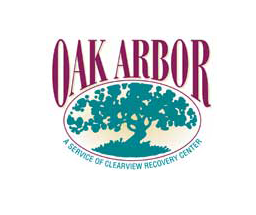4 Commonly Asked Questions About Addiction
- By Admin
- •
- 20 Dec, 2021
- •
Addiction is a common problem, and it can affect the lives of everyone involved. If you would like to know more about addiction, check out these four commonly asked questions.
1. What Causes Addiction?
Many activities trigger your brain's reward center, such as exercising. However, many drugs (and alcohol) also trigger this center. This causes some people to continue using the drug to keep getting that euphoric feeling. However, eventually, the brain's tolerance rises, and it craves more and more just to feel normal.
If someone with an addiction stops taking the drug, this can bring on withdrawal symptoms, which can send them back to the drug to feel better. At the same time, some drugs and alcohol affects your prefrontal cortex, which affects your decision-making. As a result, you may be more inclined to make poor decisions like continuing the drug or trying another drug.
Additionally, some substances are naturally more addictive than others, such as opioids.
2. Do Some People Have a Higher Risk of Addiction?
Many risk factors can lead to addiction. But, unfortunately, you can't prevent the first risk factor: genetics. Genetically, some people are more prone to addiction. If this is the case, one or both of your parents may also likely struggle with addiction.
Regardless of your genetic history, however, a bad environment can increase your risk of addiction. This is especially problematic for teens and people who are recovering from addiction. For example, teens with little to no parental monitoring may sneak drugs and alcohol. Similarly, peer pressure for teens and people in recovery is a possible danger.
Finally, people who struggle with mood disorders like depression or anxiety are at a higher risk. When they develop addiction, it is considered a dual diagnosis. The two diagnoses can interfere with each other: drugs and alcohol can worsen your mood disorder, and your mood disorder can make you want to use the drug or drink the alcohol to escape.
3. What Are the Physical and Behavioral Symptoms of Addiction?
There are many symptoms of drug use, but they depend on the type of drug. Club drugs like MDMA can cause hallucinations, reduced inhibitions, and paranoia, but stimulates like meth may make you feel exhilarated, alert, aggressive, and restless. Barbiturates, however, make you feel drowsy and give you a lack of inhibition.
However, once addiction sets in, the symptoms become more complex. People with addiction often think about the drug or alcohol regularly and may feel they need to consume it daily. They likely always make sure they have the drug on hand, and they may avoid other activities to focus on getting the drug or taking the drug.
Because of these behaviors, many people with addiction stop spending time with friends and family. They may lose their job or start failing in school. They may steal to get money for the drug, and they may forgo all their responsibilities, including bathing and cleaning, just to get and take the drug.
4. How Is Addiction Treated?
Addiction usually needs to be treated with therapy, but the exact type of therapy depends on the personal situation. For example, in extreme conditions, the individual may need to check into an in-patient rehabilitation center. These centers allow the person to solely focus on their recovery.
Some people do well with outpatient rehabilitation therapy, and outpatient rehabilitation therapy is also needed for patients after leaving an in-patient facility. If the individual has a dual diagnosis, they will also need to address the underlying cause of their depression, anxiety, etc. as well.
Addiction is a disease, and like any disease, you should consider professional help. With a professional, you'll be able to detox safely and work on new coping methods. If you would like to know more, or if you would like to see how we can help, contact us at Oak Arbor today.






